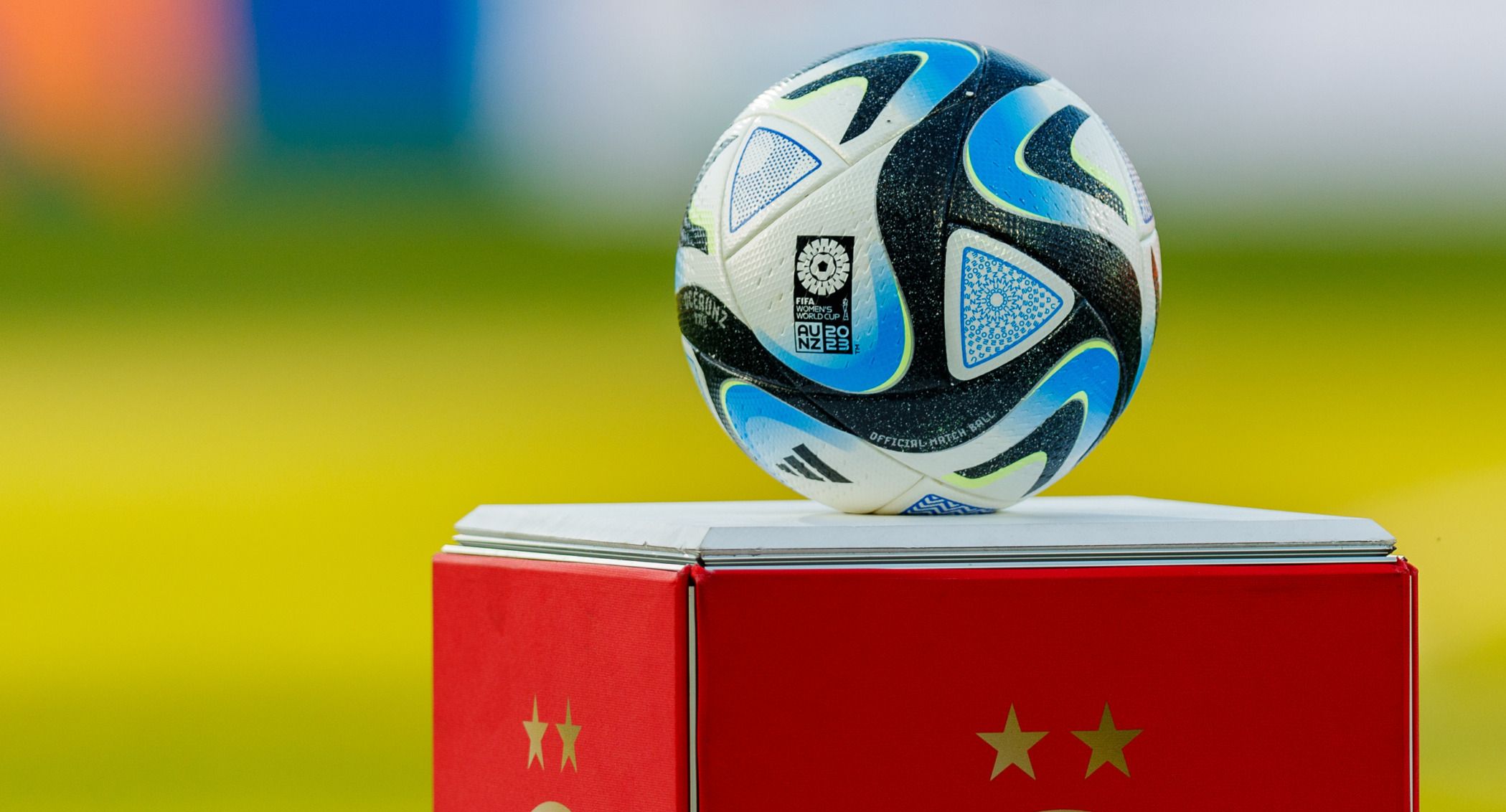
In the vibrant landscape of the 2023 FIFA Women’s World Cup, a tournament jointly hosted by Australia and New Zealand, an unexpected and profoundly divisive storyline emerged that overshadowed, for many, the athletic prowess on display. The focus shifted from goal-scoring triumphs and strategic plays to a contentious issue surrounding the United States Women’s National Team (USWNT) and their actions during the playing of the national anthem.
This controversy, which captured significant media attention and sparked intense debate across the home country, centered on the decision by several USWNT players not to sing “The Star-Spangled Banner” prior to their matches. Their silence, perceived by some as a profound lack of patriotism, ignited a firestorm of criticism and fostered a palpable sense of anger among certain segments of the American public.
This article undertakes an in-depth examination of this multifaceted controversy, dissecting the precise nature of the players’ actions, the immediate and sustained public reactions, the vocal condemnations from prominent commentators, and the historical underpinnings of such protests. It aims to provide comprehensive context to an issue that transcended the bounds of sports and touched upon fundamental questions of patriotism, activism, and the right to individual expression.
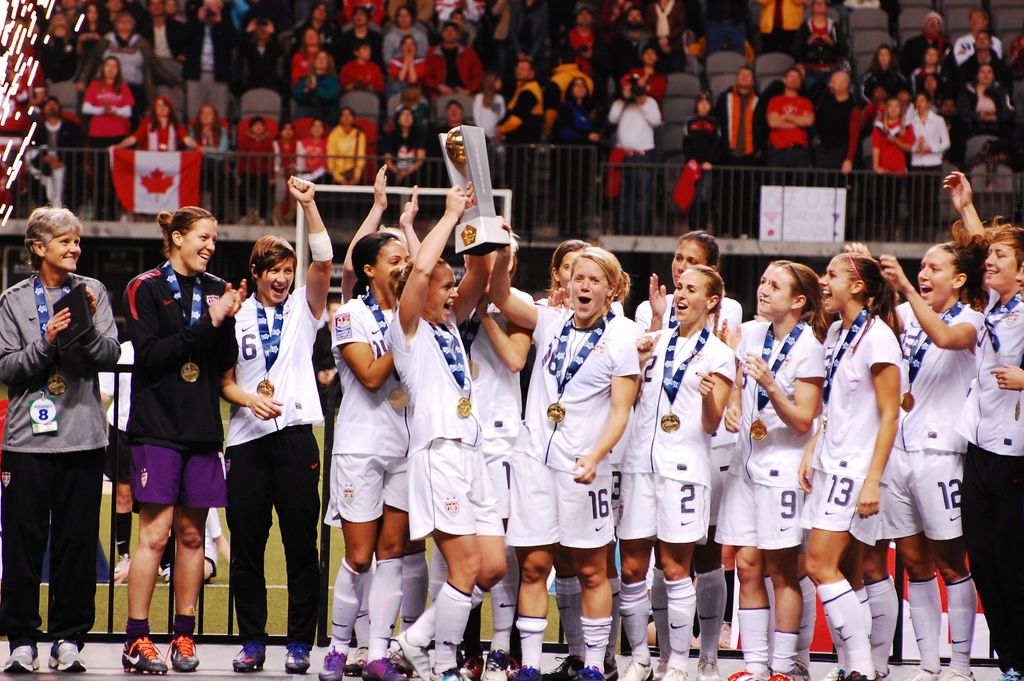
1. **The Genesis of the Controversy: Players’ Decision Not to Sing Anthem**
During their pivotal Group E matches against Vietnam, the Netherlands, and Portugal in the Women’s World Cup, a majority of players from the United States Women’s National Team chose to refrain from singing the national anthem, “The Star-Spangled Banner.” This decision was notably consistent across these initial games, setting the stage for the widespread public discourse that would follow.
Observers noted that not only did most players remain silent, but some also elected not to place their hands over their hearts as the anthem played. This deliberate stance became a visual manifestation of their protest, drawing immediate attention and serving as the primary catalyst for the ensuing national conversation.
This action was not merely an oversight or a casual choice; it was presented by the players as a conscious form of protest aimed at highlighting significant social injustices. Specifically, their silent demonstration was a stand against racial injustice and police violence in North America, issues they sought to bring to a wider public consciousness through their prominent platform.
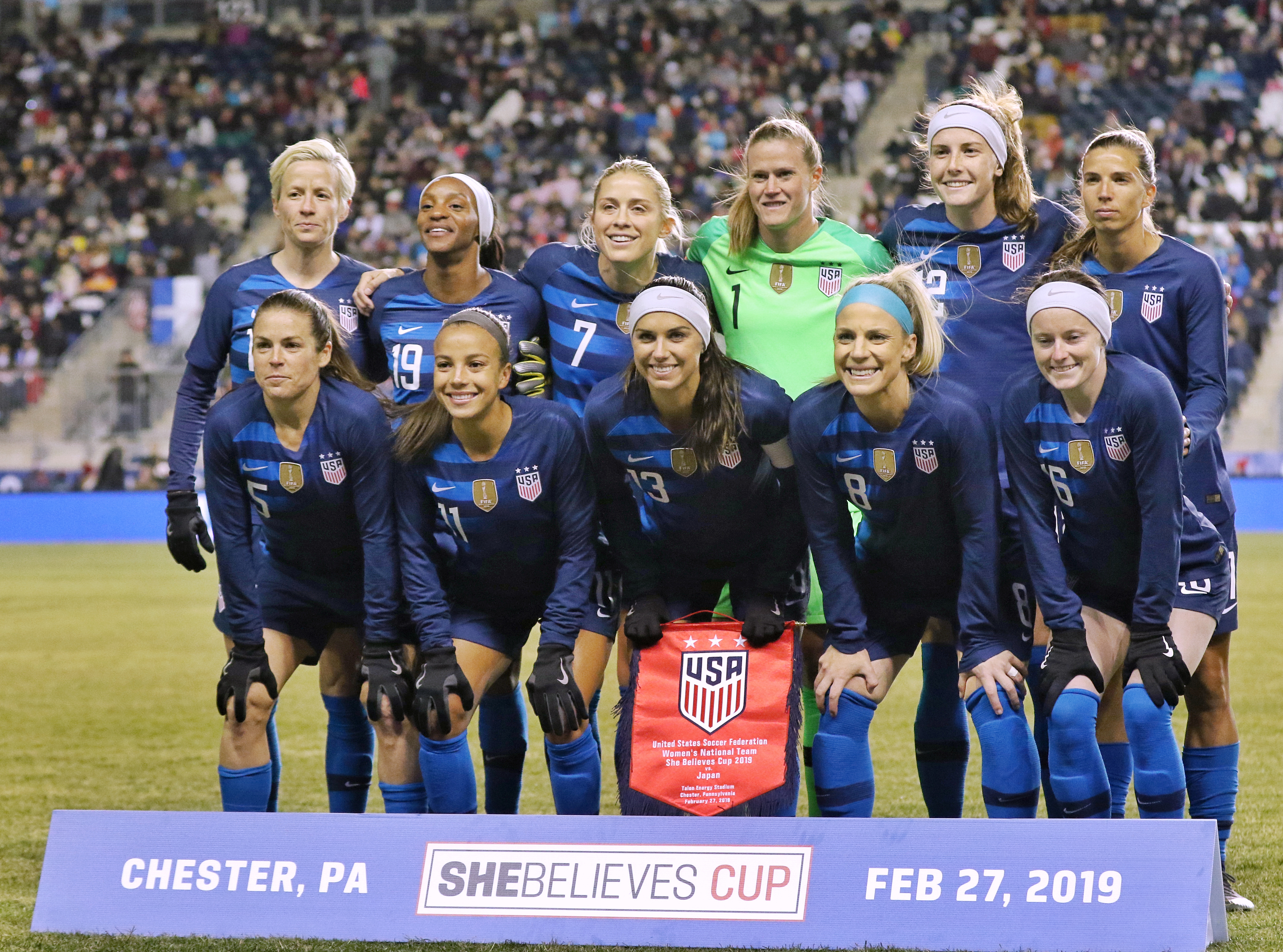
2. **Early Reactions: Fan Outcry and Social Media Storm**
The immediate aftermath of the USWNT’s opening match against newcomer Vietnam saw a surge of vocal discontent from fans back home, despite the team’s decisive 3-0 victory. Social media platforms quickly became a battleground for expressions of anger and disappointment regarding the players’ silence during the national anthem.
Many fans voiced their frustration, perceiving the players’ actions as disrespectful to the nation. One person quipped, “Can someone teach [the United States Women’s Soccer team] the words to the ‘Star Spangled Banner’? Their silence was deafening,” encapsulating a common sentiment that questioned the players’ commitment to patriotic display.
Further criticism highlighted a perceived contrast with the opposing team, as the Vietnamese national team notably belted out their national song, “Tiến Quân Ca,” with all 11 players singing along and placing their right hands over their hearts. This stark difference led another observer to write, “Too bad they all aren’t proud to have hands-on hearts and sing. Vietnam team was sure proud if theirs. Disappointing,” underscoring the expectation of visible patriotism.

3. **Prominent Critics: Megyn Kelly’s Public Condemnation**
Among the most outspoken critics of the USWNT’s anthem stance was journalist Megyn Kelly, who utilized her SiriusXM podcast as a platform for strong public condemnation. Kelly accused the team of exhibiting a profound lack of patriotism and disrespect toward their country, asserting that their actions were an embarrassment.
She specifically criticized the players’ decision not to sing the anthem or place their hands over their hearts, framing it as an insult to the nation and its military. Kelly’s rhetoric was sharp, directly linking the players’ conduct to a broader perceived betrayal of national values.
In a particularly pointed segment, Kelly stated, “She’s poisoned the entire team against the country for which they play. I don’t know about you, but I’m not rooting for them. I’m not with them. I hope they lose…It’s shameful. These girls are shameful. They ought to be ashamed of themselves.” This declaration starkly illustrated the depth of her disapproval, expressing a desire for the team’s defeat due to their protest.
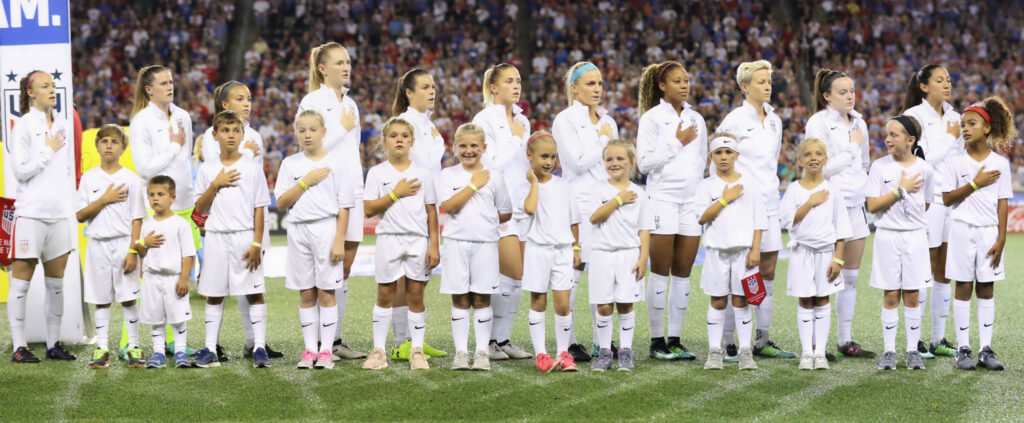
4. **Historical Context: Past Anthem Protests by USWNT**
The USWNT’s decision to remain silent during the national anthem in 2023 was not an isolated incident but rather a continuation of a precedent set years prior. This historical context is crucial for understanding the team’s long-standing engagement with social and political issues through symbolic gestures during the anthem.
Back in 2016, some players had already adopted a similar form of protest by kneeling during the national anthem. These actions were undertaken with the express purpose of raising awareness about pressing social issues, mirroring the broader movement initiated by NFL player Colin Kaepernick.
This history demonstrates that the USWNT has, for nearly a decade, utilized its highly visible platform to advocate for societal change. Their consistent engagement underscores a deliberate and ongoing commitment to addressing what they perceive as fundamental injustices, extending beyond the immediate context of a soccer tournament.
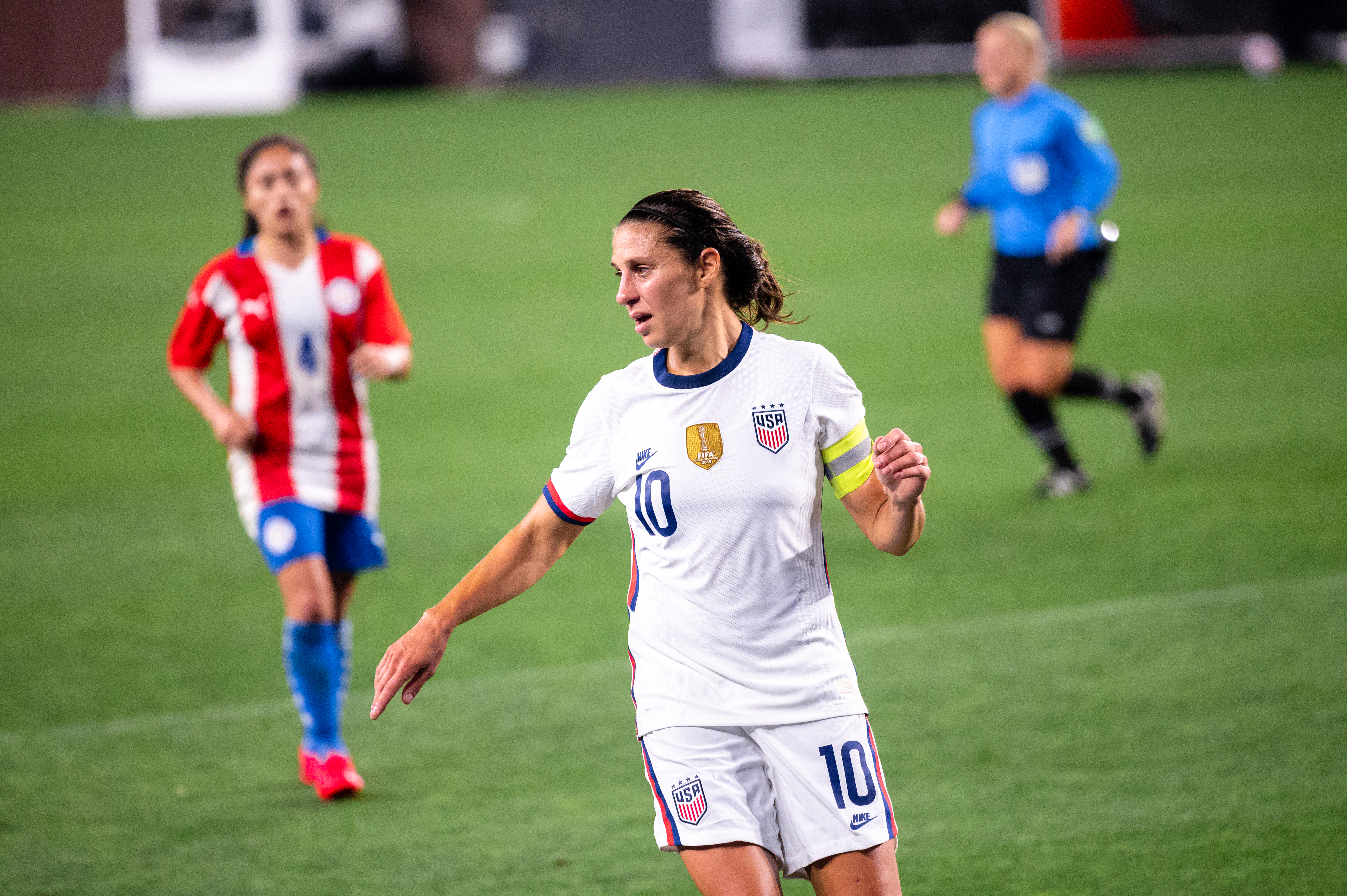
5. **The ‘Why’: Players’ Stated Reasons for Protest**
At the core of the USWNT players’ anthem protest lies a clear articulation of their motivations, which extend beyond simple dissent to a targeted critique of systemic issues. Their actions during the 2023 World Cup were explicitly a continuation of their protest against racial injustice and police violence prevalent within North America.
Megan Rapinoe, a prominent voice within the team, had previously elaborated on her personal commitment to this form of protest. Speaking ahead of the 2019 World Cup, Rapinoe outlined the comprehensive societal reforms that would be necessary for her to alter her stance on the anthem.
She declared, “It would take a lot,” specifying that such a shift would necessitate “criminal justice reform,” a significant reduction in “the huge inequality gap that we have to be much better,” and substantial “progress in LGBTQ rights.” Rapinoe’s statement underscored that her protest was rooted in a broad critique of various forms of systemic inequality and injustice in the United States, affirming her consistent position: “I’ll probably never put my hand over my heart,” she stated matter-of-factly. “I’ll probably never sing the national anthem again.”
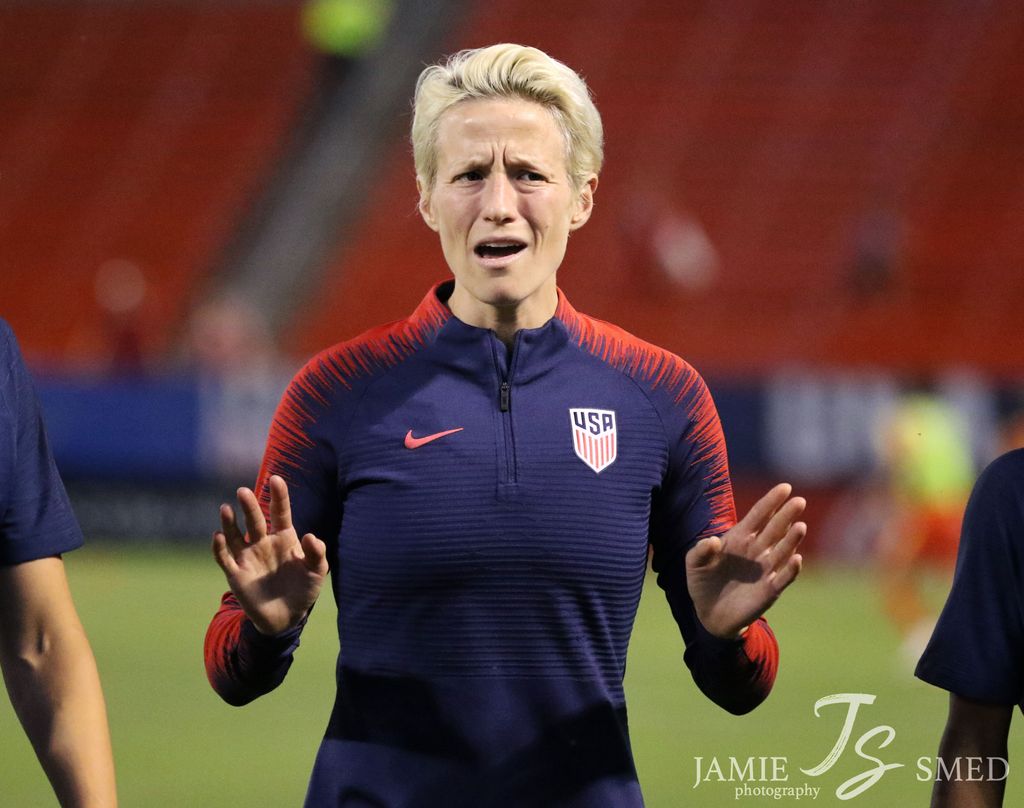
6. **Megan Rapinoe: A Leading Voice in Activism and Controversy**
Megan Rapinoe has long been recognized as a pivotal figure not just for her athletic prowess on the field, but equally for her unwavering commitment to social and political advocacy. Her role as a prominent voice for LGBTQ+ rights and her steadfast support for Colin Kaepernick’s kneeling protests have cemented her status as a leading activist within professional sports.
Her influence extends beyond direct participation in protests; media personalities like Megyn Kelly explicitly identified Rapinoe as the “leader of all this” national anthem controversy. This perception highlights Rapinoe’s significant impact on the team’s collective stance, even when she was not a starter and thus not always on camera during the anthem.
Rapinoe’s sustained advocacy gained further attention as she announced her retirement following the 2023 World Cup, making this tournament her final opportunity to compete on the global stage. Her continued adherence to her protest principles in her concluding professional appearances underscored the deeply held nature of her convictions, marking the end of an era defined by both athletic excellence and impactful activism.
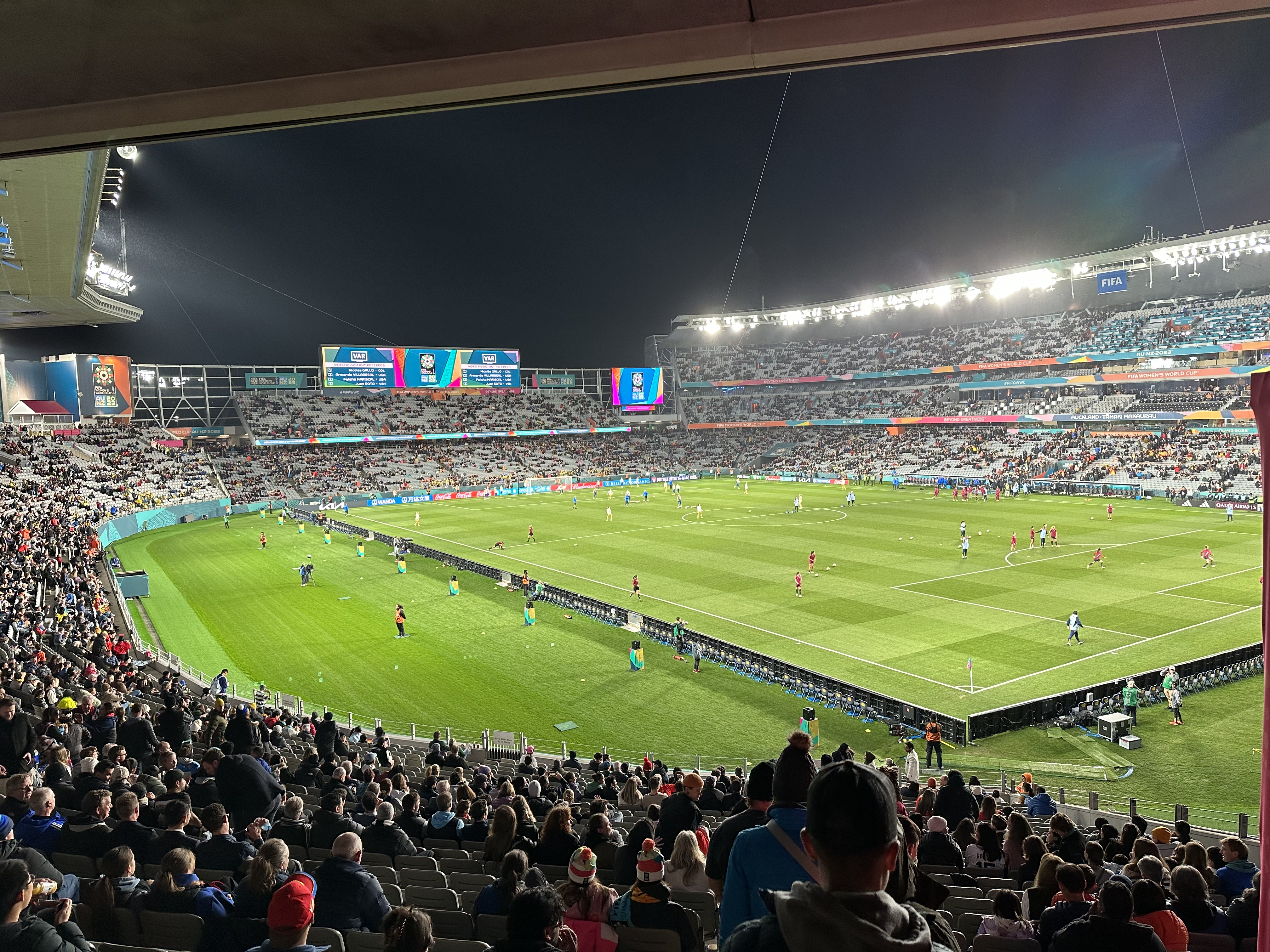
7. **Team Performance Amidst the Turmoil: Navigating the Group Stage**
Despite the considerable off-field controversy surrounding the national anthem protests, the USWNT continued their campaign in the 2023 Women’s World Cup, successfully navigating the initial group stage. The team’s primary focus remained on their performance on the field, even as public debate raged.
The defending champions managed to secure their place in the knockout stages, finishing second in Group E. Their group stage journey included an initial 3-0 victory against Vietnam, a result achieved even as vocal fan criticism about their anthem stance was already surfacing.
Following the win against Vietnam, the USWNT recorded two draws: a 1-1 tie against the Netherlands and a goalless draw with Portugal. These results were sufficient to ensure their progression, demonstrating the team’s ability to maintain competitive performance despite the intense scrutiny and public pressure associated with the ongoing national anthem discourse.
Following their passage through the group stage, the United States Women’s National Team continued their World Cup journey, yet the contentious debate surrounding their national anthem stance persisted. Even as the tournament progressed to the knockout rounds, the team’s actions during the playing of “The Star-Spangled Banner” remained a significant point of discussion and criticism back home, overshadowing some of their athletic endeavors. This ongoing scrutiny highlighted the deep divisions that the protest had engendered among the American public, revealing a complex interplay of sports, patriotism, and social commentary.
The players’ decisions regarding the anthem, rooted in their long-standing advocacy for social justice, continued to draw attention, both from supporters who understood their message and from detractors who viewed it as disrespectful. This persistent focus on off-field actions demonstrated how deeply entrenched the controversy had become, transforming a sporting event into a broader national dialogue about freedom of expression and civic duty. The team’s efforts to focus solely on their performance were consistently challenged by the external narrative, which often prioritized the anthem debate over their athletic achievements.
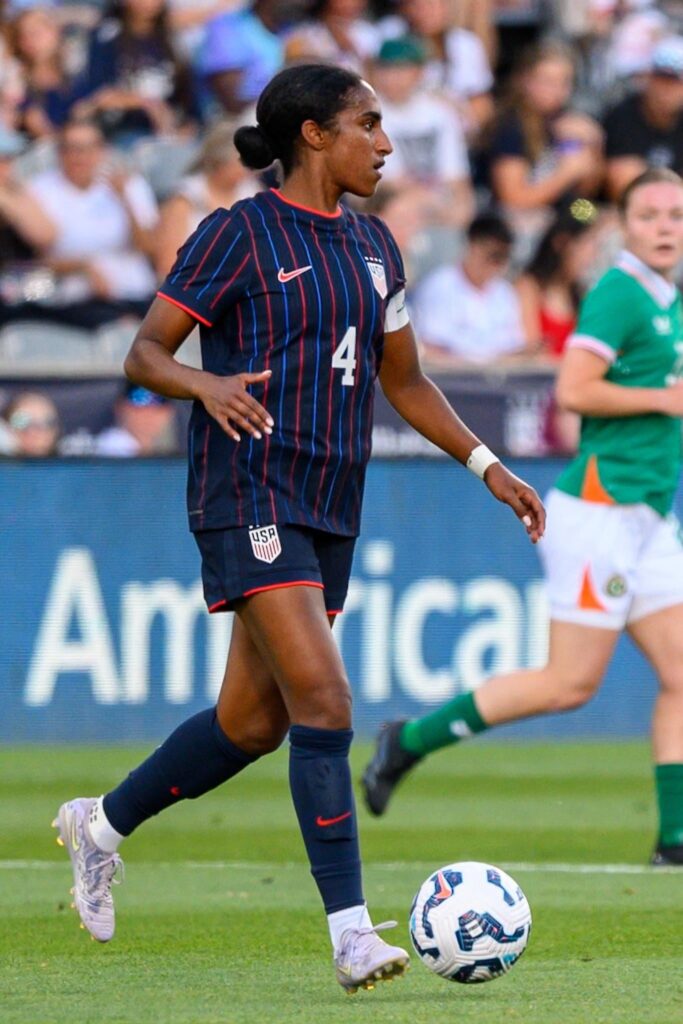
8. **The Silent Stance Continues: Round of 16**
As the USWNT advanced to the round of 16, facing Sweden in a crucial knockout tie, the national anthem controversy showed no signs of abating. Reports from the match indicated that six members of the team once again chose not to sing along during the national anthem, a continuation of their consistent stance observed throughout the group stage matches against Vietnam, the Netherlands, and Portugal. This reiteration of their silent protest underscored the players’ unwavering commitment to their cause, despite the mounting external pressure and public criticism.
Among those who elected not to sing were prominent players such as Naomi Girma and Crystal Dunn. While five members of the team did sing along, the visible silence of others became a focal point for observers. This particular instance further fueled the narrative propagated by critics, who interpreted the players’ actions as an ongoing display of disrespect towards the nation and its symbols, intensifying the public’s debate.
Megyn Kelly, a vocal critic, continued to attribute this decision, even when certain players like Megan Rapinoe were not in the starting XI, to Rapinoe’s perceived influence. Kelly asserted that Rapinoe was “the leader of all this,” claiming she had “poisoned the entire team against the country for which they play.” This specific condemnation vividly illustrated how deeply the controversy had become intertwined with individual personalities and their perceived roles in the protest.
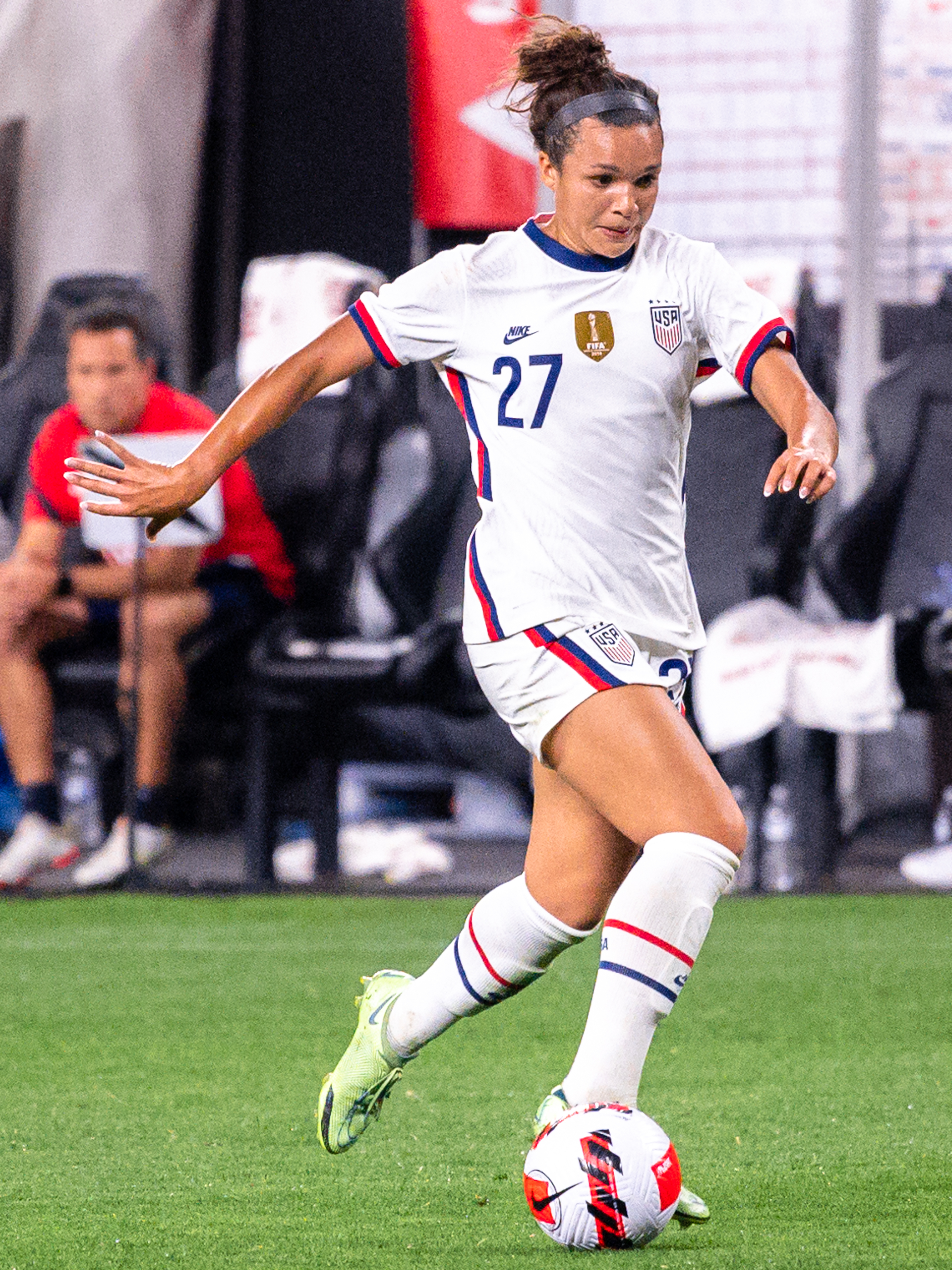
9. **A Disappointing Exit: The World Cup Elimination**
Despite navigating the group stage, the USWNT’s World Cup journey came to an abrupt and historic end in the round of 16. Following a goalless draw against Sweden, the match proceeded to a tense penalty shootout, a format known for its high stakes and dramatic conclusions. The defending champions ultimately succumbed to Sweden, marking their earliest World Cup exit in history, a stark contrast to their previous successes on the global stage.
The shootout itself was fraught with moments that compounded the team’s disappointment. Crucial penalty misses by Megan Rapinoe and Sophia Smith significantly hampered the United States’ chances of victory. Adding to the tension, Kelley O’Hara’s subsequent miss on the final shot provided Sweden with the decisive opportunity they needed to seize the advantage and secure their progression, leaving the USWNT to grapple with an unexpected early departure.
This elimination sent shockwaves through the soccer world and intensified the ongoing debates surrounding the team. For many critics of the anthem protest, the team’s early exit served as further validation of their prior condemnations, linking the perceived lack of patriotism to the on-field performance. The confluence of the controversial anthem stance and the disappointing athletic outcome created a challenging narrative for the team and its supporters to navigate.
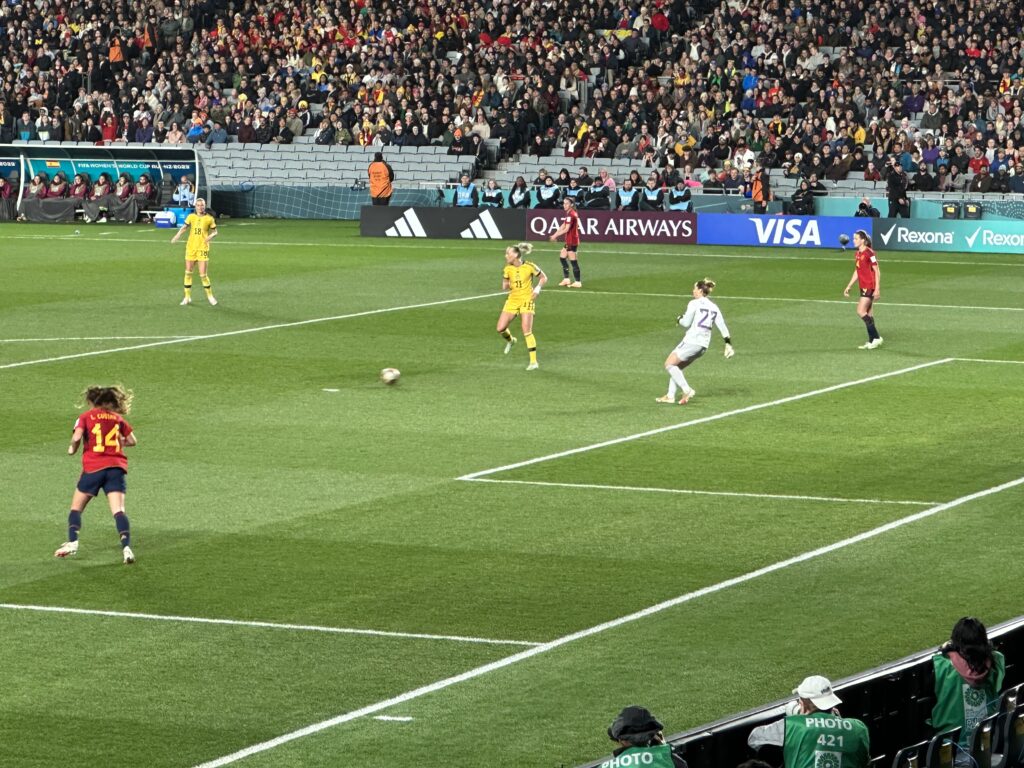
10. **The Perceived “Disgrace”: Fan Reactions to Defeat**
The USWNT’s early elimination from the World Cup, particularly given their status as defending champions, ignited a fresh wave of intense criticism, much of which quickly converged with the existing national anthem controversy. For a segment of the American public, the team’s defeat was not merely a sporting upset but was interpreted as a consequence, or even a form of poetic justice, linked directly to their perceived lack of patriotism during the anthem. This perspective underscored a deeply held belief among some fans that the players’ actions had brought a “disgrace” upon the nation.
Online platforms became a conduit for these exacerbated sentiments. Many fans who had previously expressed anger over the anthem stance now openly rooted against the team, or voiced satisfaction at their loss. Comments like, “As an American… I hope the U.S. women’s soccer team gets beat by every other national team they play! The U.S. women’s soccer team IS A DISGRACE!” became prevalent, illustrating a strong punitive sentiment. This vocal opposition demonstrated a significant emotional investment in the controversy, extending beyond typical sports fandom.
The sentiment among some critics was that the team had, through their protests, forfeited the right to represent the nation. Calls for sponsors to withdraw their support and for players to “find another country to play for” or “get out of the sport” also emerged, reflecting a desire for tangible repercussions for the players’ actions. This level of animosity indicated that for many, the issue had transcended mere athletic performance and had become a matter of fundamental national identity and loyalty.
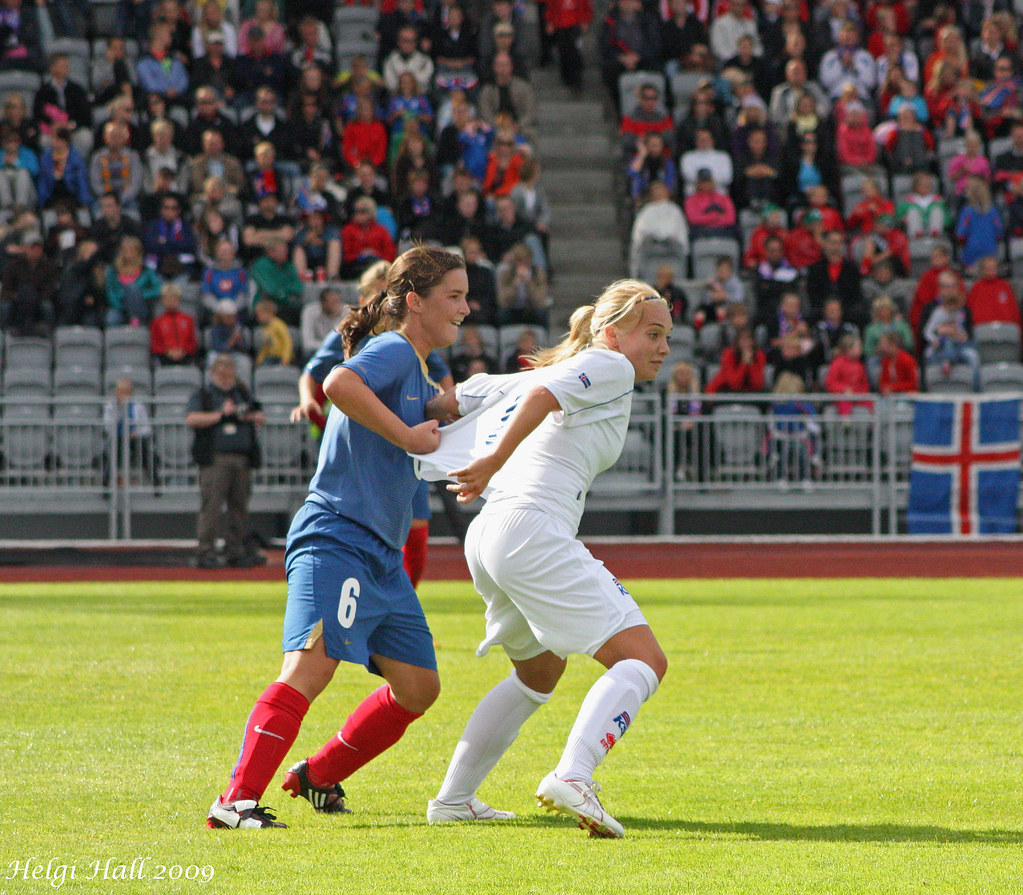
11. **Media’s Intentional Silence: Covering the Controversy on the Ground**
Amidst the swirling controversy and the loud public discourse surrounding the USWNT’s national anthem stance, a curious phenomenon was observed among the journalists directly covering the team at the World Cup. Meg Linehan, a beat writer for The Athletic, revealed a collective decision among the USWNT press corps to actively choose not to engage with the national anthem debate that was dominating mainstream media discussions back in the United States. This deliberate avoidance of the topic by on-ground reporters was, according to Linehan, no accident.
This strategic silence by the professional journalists covering the team on an everyday basis stood in stark contrast to the continuous commentary and outrage emanating from other media personalities and social media users. It suggested a different perspective held by those closest to the team and the event itself. The decision implied a recognition that the narrative being pushed externally did not align with the observations or the focus of those present at the tournament.
Linehan explained that while one player, defender Naomi Girma, was briefly asked about the national anthem after the match against Vietnam, her simple response of “ultimately, every player has the choice” was the extent of the official engagement from the press corps. The topic was not subsequently pursued with players or coaches, indicating a consensus among the journalists to prioritize other aspects of the tournament and the team’s performance.
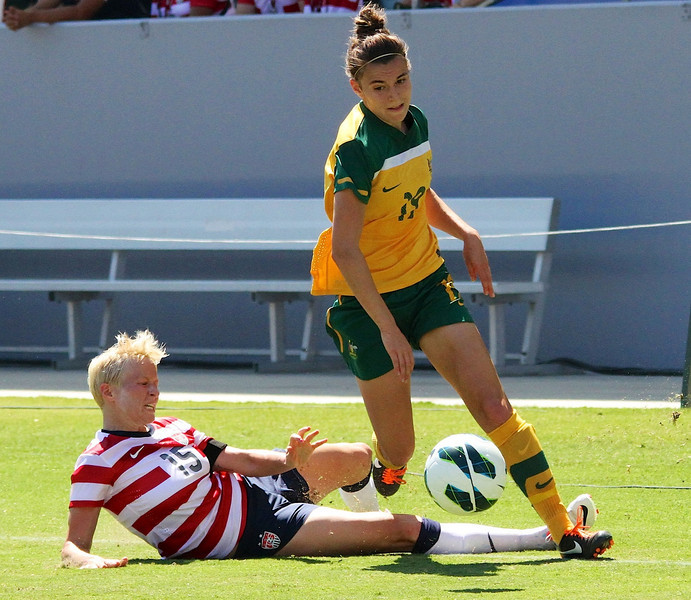
12. **The Press Corps’ Rationale: Beyond the Anthem**
The conscious decision by the USWNT press corps to largely ignore the national anthem controversy was rooted in a critical assessment of the nature of the public’s outrage. According to Meg Linehan, the reporters on the ground concluded that the fervor “clearly wasn’t about singing the anthem.” This perspective suggested that the public’s intense reaction was a proxy for deeper, unstated grievances, rather than a genuine concern about the players’ vocal participation during the anthem.
Linehan’s insight highlighted a fundamental disconnect between the media narrative prevalent in the United States and the reality perceived by journalists covering the team directly. The deliberate choice not to participate in the discourse was a journalistic stance, intended to avoid legitimizing what they viewed as a misdirected or disingenuous debate. They opted to focus on issues pertinent to the sport and the players’ actual performances, rather than fueling a controversy they believed was driven by ulterior motives.
This approach reflected a commitment to journalistic integrity, aiming to provide context and report on what was truly at play, rather than being swept up in an emotionally charged, yet superficial, debate. The press corps recognized that engaging with the “anthem controversy” as it was framed by external critics would detract from the more substantive issues that the players were attempting to highlight through their protest. Their silence was, paradoxically, a form of informed commentary on the nature of the public’s reaction.
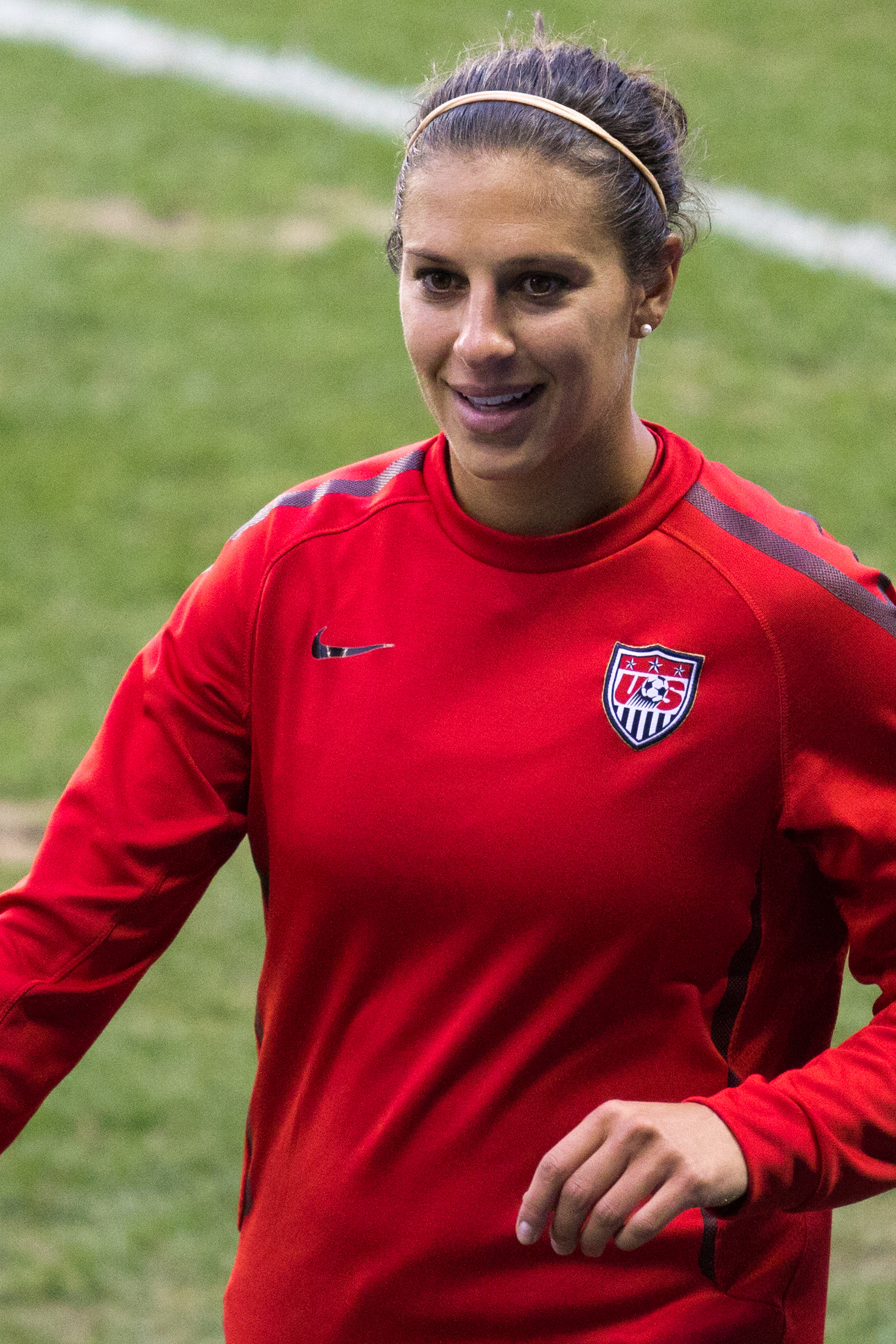
13. **Debunking Misinformation: The WWII Veteran Claim**
Beyond the broad discourse surrounding the anthem protest, the USWNT also became the target of specific, widely circulated misinformation that sought to further malign the team’s image. One prominent false claim alleged that “Several members of the U.S. Women’s National Soccer Team turned their backs as 98-year-old World War II veteran Pete DuPré played the National Anthem on his harmonica” during a match. This claim, often accompanied by emotionally charged language, quickly gained traction on social media platforms.
However, this claim was definitively debunked by both the U.S. Soccer Federation and the USWNT account itself. Official statements and corroborating footage clarified that no players turned their backs on the veteran. Instead, some players were simply facing a flag that was located on a pole at the end of the stadium, a common practice during anthem ceremonies. Carli Lloyd, a forward on the national team, also publicly refuted the claim, confirming that players turned to face the flag.
Further evidence disproving the claim included footage of players warmly greeting DuPré, signing a soccer ball for him, and interacting respectfully. The US. Soccer Federation also noted DuPré’s “unique tie with the U.S. Women,” having met them previously in Normandy in 2019. This incident served as a stark example of how easily false narratives can be constructed and disseminated to fuel existing biases, and how quickly verifiable facts can be presented to counter them.
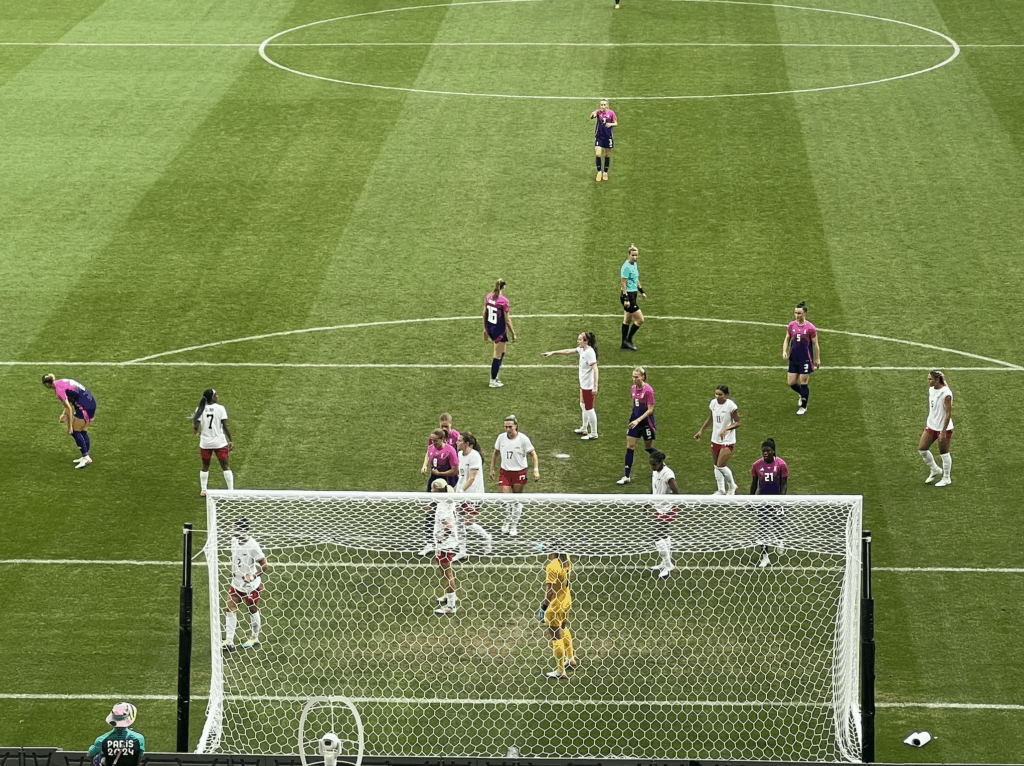
14. **Deeper Roots of Outcry: Societal Biases**
The intense fan reaction against the USWNT, particularly the disproportionate outrage over the anthem protests compared to other issues, was identified by those close to the team as being rooted in deeper societal biases. Meg Linehan articulated this viewpoint clearly, stating that the “2023 outrage has never been rational.” She argued that the criticism was not genuinely about the act of singing the anthem but was instead a manifestation of underlying prejudice.
Linehan specifically identified these drivers as “misogyny and sexism, racism, homophobia and transphobia.” These elements, she explained, are “all the antitheses to the things this team has stood for collectively and individually.” This analysis suggests that the anger directed at the team was not a result of their actions during the anthem in isolation, but rather a reaction against their broader progressive stances on social issues, which challenged traditional norms and expectations.
The team’s consistent advocacy for LGBTQ+ rights, racial justice, and gender equality, led by figures like Megan Rapinoe, positioned them as prominent voices for social change. For those holding opposing views, the anthem became a convenient flashpoint for expressing discomfort or hostility towards these progressive values. The intensity and irrationality of some of the criticism, therefore, pointed to a deeper ideological conflict rather than a simple disagreement over patriotic display.
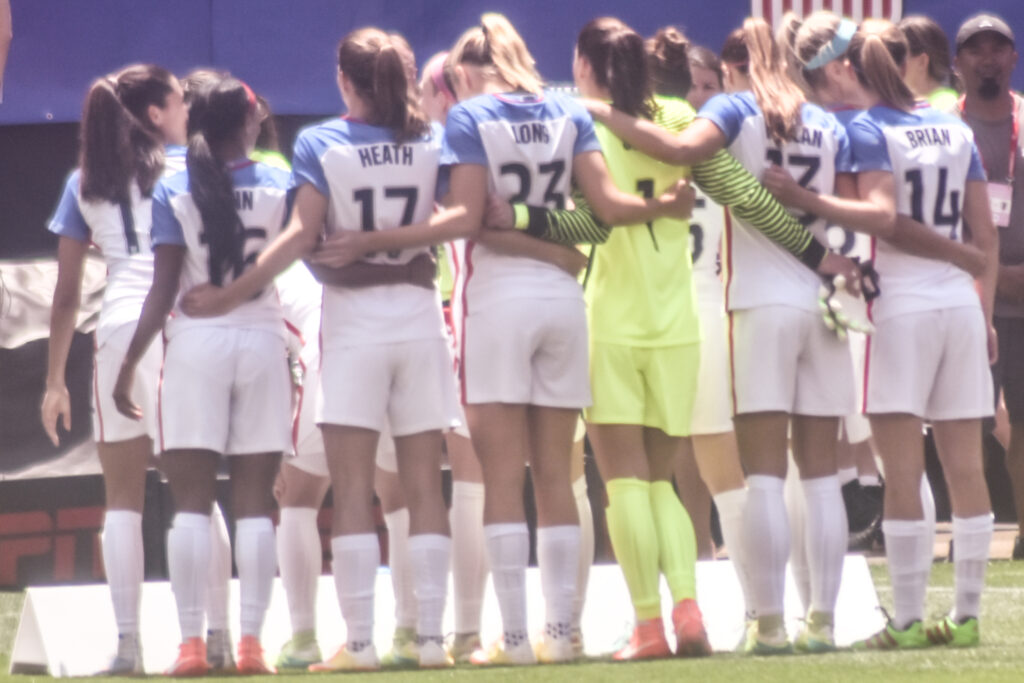
15. **Inconsistent Outrage: Comparing US Teams**
A crucial element in understanding the true nature of the fan outrage against the USWNT’s anthem protest lies in its glaring inconsistency when compared to other American sports teams. Meg Linehan pointed out that if the public’s anger was genuinely about athletes remaining silent during the national anthem, similar controversies should have erupted around other United States teams that also do not consistently sing the anthem. She specifically cited the USA baseball team at the World Baseball Classic, the USA basketball team at the Olympics, and even the United States Men’s National Team at the 2022 FIFA World Cup.
Crucially, no such widespread controversy or public outcry materialized around these other teams, despite their players often not singing the national anthem. This stark disparity led Linehan to conclude that the outrage directed at the USWNT was not truly about whether or not players sang, but rather about selective targeting. This observation underscores the argument that the core issue for critics was not patriotism as an absolute, but rather a specific animosity towards what the USWNT players represented and advocated for.
The lack of consistent application of the “sing the anthem” expectation across different teams exposed the underlying biases at play. It reinforced the idea that critics were not seeking genuine displays of patriotism, but rather leveraging the anthem issue as a pretext to express their dislike for the USWNT’s social activism. This discriminatory outrage highlighted the double standards and prejudices that permeated the public discourse, making it clear that the focus was not on the act itself, but on the individuals performing it and the causes they championed.
The controversy surrounding the USWNT’s national anthem protests during the 2023 World Cup transcended the boundaries of sport, evolving into a complex national dialogue on patriotism, activism, and identity. The team’s unwavering commitment to their principles, even in the face of intense public scrutiny and a disappointing athletic outcome, underscored their resolve to use their platform for social change. While the debate generated considerable division, it also served to highlight profound societal biases, prompting a deeper examination of what true patriotism entails and the ongoing struggle for equality and justice within the public sphere. The legacy of this World Cup will undoubtedly be remembered not just for the soccer, but for the powerful, silent statements made on the world stage.”



